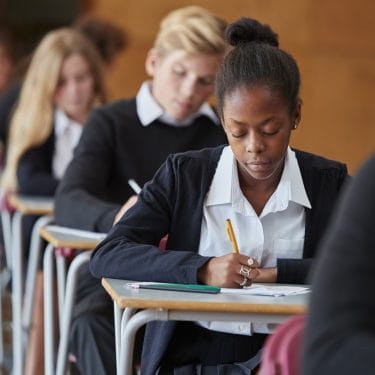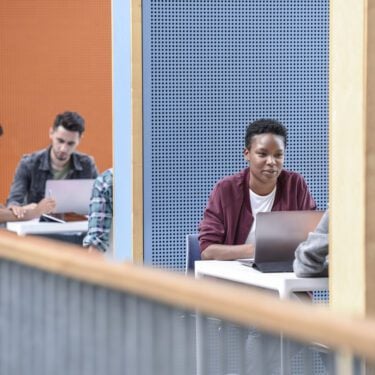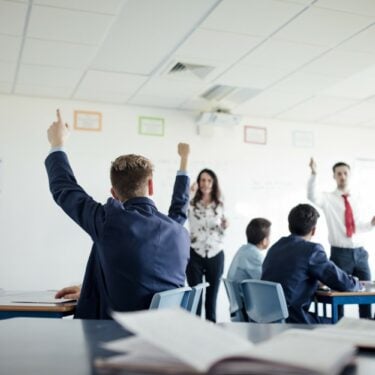New research published today by the Institute for Fiscal Studies (IFS), and funded by the Nuffield Foundation, provides fresh evidence on the extent to which the difference in educational outcomes between children born at different times of the year continues to affect them throughout their lives.
It also provides new insight into what explains these differences, which is crucial in order to understand the most appropriate policy response.
The report uses new data to confirm that, relative to children born in September, those born in August, on average:
- Are 6.4 percentage points less likely to achieve 5 GCSEs or equivalents at grades A*-C (53.7% vs. 60.1%).
- Are 2 percentage points less likely to go to university at age 18 or 19, and 1 percentage point less likely to attend a Russell Group institution.
- Have lower confidence in their academic ability and are less likely to believe that they control their own destiny (locus of control) as teenagers.
It provides new evidence that, in addition, they are:
- 5.4 percentage points more likely to be labelled as having mild special educational needs at age 11 (12.5% vs. 7.1%).
- More likely to engage in risky behaviours such as underage smoking at younger ages.
- 1 percentage point less likely to obtain a degree.
However, despite the large and significant differences that we observe between children born at the start and end of the academic year in terms of educational attainment and other skills and behaviours during childhood, we find little evidence that these detrimental effects persist into adulthood.
In particular, relative to individuals born in September, those born in August, on average:
- Are no more or less likely to be in work (although they are slightly more likely to be unemployed).
- Do not earn more or less per hour or week.
- Are (subjectively) no healthier or happier during adulthood.
Commenting on these findings, Claire Crawford, Programme Director at IFS and one of the authors of the report, said:
“Our research continues to show very large differences in attainment between children born at the start and end of the academic year, which affects the post-compulsory education options open to them. While we find little evidence that these differences persist into adulthood, this does not mean that policymakers should be let off the hook. Our research shows that children who are relatively young in their year have lower self-confidence, lower belief in their academic ability and are more likely to start smoking younger than their relatively older peers. This suggests that it is still vital for policymakers to act to overcome these differences.”
Crucially, the report also provides new insight into what drives the differences in attainment and other skills that we see. We find that:
- Age at test matters most. This means that children born in August end up with worse exam results, on average, than children born in September simply because they are 11 months younger when they sit national achievement tests
- By contrast, we find that the age at which children start school and the amount of schooling they receive prior to the test explain very little of the differences in test scores that we observe.
On the basis of our results, we recommend that the following policy actions are taken to help address the consequences of month of birth differences in educational attainment and wider outcomes:
- National achievement test scores should be age adjusted to account for the fact that children born at different times of the year have to sit the tests when they are different ages.
- These age-adjusted scores should be used to calculate school league table positions, to determine entry to schools that select on the basis of ability and potentially also to assign pupils to ability groups within schools.
- They should also be used to assess whether a pupil can continue into further and higher education. But when pupils leave school, they should take with them their non age-adjusted grades, to ensure that employers can be confident that pupils have achieved a particular absolute standard.
Commenting on these findings, Ellen Greaves, Research Economist at IFS and another author of the report, said:
“Our findings point to a simple solution to the pitfalls of testing children born at the start and end of the academic year at very different ages: age-adjusting the cut-offs required for pupils to achieve particular grades would ensure that no child is prevented from going on to further or higher education simply because of the month in which they were born. The policy solutions to some of the other differences we observe are less clear, however, making it vital that teachers and parents are aware of the potential disadvantages that children born at the end of the year may face across a whole range of areas.”
Notes to editors
1. For media enquiries contact: Emma Hyman at the IFS (020 7291 4800 / 07730 667 013)
2. The Nuffield Foundation has funded this project, but the views expressed are those of the authors and not necessarily those of the Foundation.























































